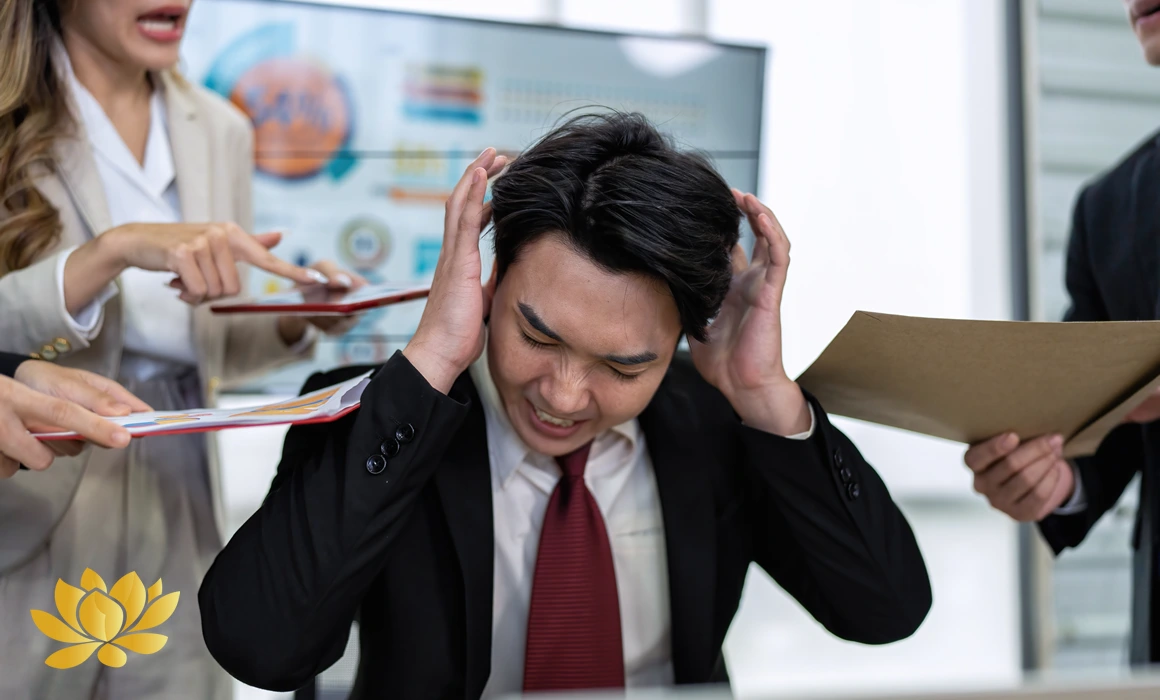
The Real Reason You’re Still Stressed After a Spa Day
You booked the appointment. You cleared your schedule. You spent hours at the spa surrounded by soothing music, aromatherapy scents, and warm towels. For a few blissful hours, life felt lighter. Your muscles relaxed, your breathing slowed, and your thoughts drifted away from daily worries.
But then, the next day or even a few hours later, reality hit. The emails were still piling up. The kids still needed your attention. The bills were still waiting to be paid. Before you knew it, the tightness in your shoulders and the racing thoughts were back.
If you have ever wondered why your stress seems to return so quickly after a spa day, you are not alone. Many people think a massage, facial, or soak in a hot tub will erase stress for good, but the truth is more complicated. Here is the real reason you are still stressed after a spa day and what you can do about it.
1. Stress Is More Than Physical Tension
A spa day can work wonders for your muscles, skin, and mood in the moment, but stress is not just about tight shoulders or a stiff neck. It is a complex mix of mental, emotional, and even biochemical reactions in your body.
When you are stressed, your body releases hormones like cortisol and adrenaline. These chemicals are designed to help you react quickly in emergencies, but in modern life, they can stay elevated for long periods due to constant triggers like deadlines, financial pressure, and relationship challenges.
A massage can relax your muscles and temporarily lower cortisol levels, but if your mind is still replaying worries or your environment is still filled with stressors, those levels can climb again quickly.
Real-life example: Sarah, a 35-year-old marketing manager, shared that after her deep tissue massage, she felt incredible-until she checked her phone in the car and saw 47 new emails. Within minutes, her stress levels were right back where they started.
Solution: Think of a spa day as one part of a bigger stress management plan, not the entire plan. Pair physical relaxation with mental and emotional strategies like mindfulness, journaling, or talking to a therapist.
2. Your Daily Environment Has Not Changed

The calm of a spa is carefully designed. Dim lighting, soft music, pleasant aromas, and friendly staff all work together to signal to your brain that it is safe to relax. Unfortunately, your home or office may be the exact opposite.
If you return from the spa to cluttered rooms, loud noise, constant interruptions, or an overloaded to-do list, your nervous system can quickly slip back into “fight or flight” mode.
Science says: Environmental stressors such as clutter have been linked to higher cortisol levels. A 2010 study from UCLA’s Center on Everyday Lives of Families found that women who described their homes as “cluttered” had higher levels of the stress hormone throughout the day.
Solution: Try to bring elements of the spa environment into your daily life. Declutter your space, play calming music in the background, diffuse essential oils, or set a daily reminder to take deep breaths. Your surroundings influence your mental state more than you might think.
3. You Expect Instant and Lasting Results
One of the biggest misconceptions about stress relief is that it is a one-time fix. A single day of pampering feels amazing, but chronic stress is built over weeks, months, or even years. It is unrealistic to expect it to disappear after a few hours of relaxation.
Think of stress like a leaky faucet. If you turn the water off for a moment but do not fix the source of the leak, it will start dripping again. Similarly, a spa day can give you a break from stress, but the underlying causes are still there when you return.
Real-life example: Tom, a 42-year-old father of three, admitted that he was frustrated when his stress returned two days after his spa visit. When he looked closer, he realized his stress came from a mix of work overload and financial worries-things no massage could permanently remove.
Solution: Reframe your expectations. Instead of looking for a spa day to “solve” stress, see it as a reset button. Follow it up with regular self-care habits like exercise, meditation, balanced nutrition, and enough sleep to keep stress levels manageable over time.
4. You Carry Stress in Your Mind as Well as Your Body
Many people go to the spa for physical treatments but skip mental relaxation techniques. Even while receiving a massage, some clients find themselves mentally making grocery lists or replaying work problems in their heads. This means your body might be getting relief while your mind is still in overdrive.
Why it matters: The mind and body are deeply connected. If your brain continues to send “stress” signals, your muscles will likely tense up again soon after the session.
Solution: Before your treatment starts, set an intention to stay present. Focus on your breathing or on the sensation of the therapist’s hands. If your mind drifts, gently bring it back. You can also try guided meditation or visualization during your session to deepen mental relaxation.
5. You Return Immediately to Stress Triggers

If you rush from the spa straight into traffic, a heated phone call, or a work crisis, your stress relief will be short-lived. The sudden shift from deep relaxation to high stimulation can even feel more jarring because of the contrast.
Real-life example: Jessica, a freelance designer, scheduled her spa appointment in the middle of her workday. After her massage, she went straight home to meet a tight client deadline. She admitted the calm lasted less than an hour.
Solution: Plan your spa day so you can transition gently back into daily life. Leave buffer time after your appointment to enjoy a quiet activity like reading, walking in nature, or sipping tea at home. Avoid scheduling important meetings or tasks right afterward.
6. You See Self-Care as a Luxury Instead of a Necessity
One reason stress relief does not last is because many people treat self-care as an occasional treat instead of a regular part of life. If you only give your body and mind a break once every few months, it is not enough to counter the constant stress of modern living.
Statistic to know: The American Psychological Association’s 2022 Stress in America survey revealed that 27 percent of adults say they feel too stressed to function most days. Yet, only a fraction commit to consistent self-care habits.
Solution: Make relaxation a non-negotiable habit. You do not need to visit the spa every week, but you can incorporate smaller daily rituals that mimic its benefits. Try stretching in the morning, taking a warm bath in the evening, practicing mindfulness for ten minutes, or scheduling regular massages.
7. Your Lifestyle Habits Are Undermining the Benefits

Even the most skilled massage therapist cannot undo the effects of poor sleep, unhealthy eating, lack of exercise, or constant overwork. Stress thrives when your body is already run down.
Science says: Chronic lack of sleep has been shown to increase cortisol production, making it harder to relax. Likewise, diets high in sugar and processed foods can trigger inflammation, which worsens feelings of tension and fatigue.
Solution: Support your spa treatments with healthy lifestyle habits. Prioritize whole foods, regular movement, adequate hydration, and consistent sleep. These will help you maintain that relaxed state for much longer after you leave the spa.
8. You May Have Unresolved Deeper Stressors
Sometimes, persistent stress is not about surface-level tension but about deeper emotional or psychological issues. Things like grief, unresolved conflicts, burnout, or chronic anxiety cannot be “massaged away.”
Real-life example: Maya, a 29-year-old teacher, went to the spa every month but still felt exhausted and tense. After talking to a counselor, she realized her stress came from feeling unappreciated at work and struggling with loneliness. Once she started addressing those deeper issues, her spa visits felt far more effective.
Solution: Be honest with yourself about the sources of your stress. If you suspect deeper issues, consider seeking professional help. Pairing mental health support with physical relaxation techniques can create lasting change.
How to Make Your Next Spa Day More Effective
The good news is that a spa day can still be an incredibly valuable part of your wellness routine. The key is to make it part of a larger, more consistent plan for stress management.
Here are some tips to extend the benefits:
- Prepare before you go. Finish urgent tasks, silence your phone, and let people know you will be unavailable so you can truly disconnect.
- Be mindful during treatments. Focus on the sensations, sounds, and scents to keep your mind in the present moment.
- Hydrate and eat lightly. Drinking water before and after a massage helps flush out toxins, while light meals prevent sluggishness.
- Create a post-spa buffer. Avoid jumping back into high-stress situations immediately afterward.
- Incorporate daily mini-spa rituals. Use essential oils, play calming music, or take five minutes for deep breathing every day.
- Schedule regular treatments. Consistency amplifies the long-term benefits of relaxation.
The Real Takeaway
A spa day can be a powerful tool for relaxation, but it is not a magic wand. Stress is a complex condition with physical, mental, emotional, and environmental components. Without addressing all of these factors, you will likely find your tension creeping back in sooner than you would like.
The next time you plan a spa visit, think of it as one part of an ongoing strategy. Support it with healthy daily habits, mindful relaxation techniques, and if necessary, deeper emotional work. When you combine the pampering of a spa with consistent self-care, you will start to notice that your relaxed state lasts much longer than a few hours.
Your body and mind both deserve more than temporary relief. They deserve a lifestyle that supports balance every day, not just on special occasions.































